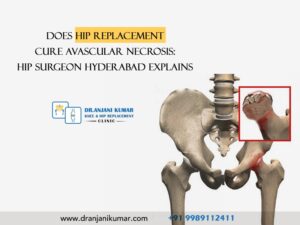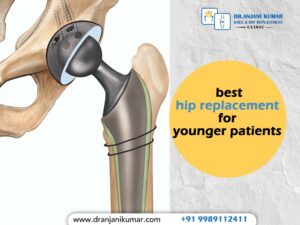Knee replacement surgery can significantly enhance mobility and alleviate pain, but following specific guidelines post-procedure is crucial. These may differ based on the surgery’s circumstances, the patient’s health, and the surgeon’s advice. Permanent restrictions are often recommended to protect the artificial joint and ensure long-term success. These guidelines may differ based on the surgery’s specifics, individual health factors, and the surgeon’s guidance.

Common permanent restrictions after knee replacement include:
- High-impact activities:
- Activities involving high-impact or repetitive knee joint stress should generally be avoided.
- Activities like running, jumping, or activities with a high fall risk are included here.
- Heavy lifting:
- Some extreme or excessive movements, namely deep knee bends and kneeling, may be permanently restricted to prevent damage to the replaced knee.
- These restrictions are often in place to protect the artificial joint.
- Prolonged kneeling:
- Prolonged periods of kneeling can be challenging for individuals with a knee replacement.
- While some may be able to kneel with modifications, others may find it uncomfortable or be advised to avoid it.
- Deep squats:
- Deep knee bends and full squats can place significant stress on the knee joint.
- Individuals may be advised to avoid or modify these movements to protect the replaced knee.
- Strenuous sports:
- Engaging in strenuous sports or activities that involve rapid and repetitive movements may be restricted.
- It’s important to choose activities that are joint-friendly.
- Excessive stair climbing:
- While regular stair climbing is usually encouraged as part of rehabilitation, excessive stair climbing may be restricted, especially with heavy loads.
- Contact sports:
- Participating in contact sports with a high risk of falls and collisions, such as football or basketball, may be discouraged to prevent trauma to the replaced knee.
- Improper body mechanics:
- Activities that involve improper body mechanics, such as heavy lifting with poor form, should be avoided to prevent strain on the replaced knee.
- High-heeled shoes:
- Wearing high-heeled shoes can alter body mechanics and place additional stress on the knee joint.
- Supportive and comfortable footwear is recommended.
- Inadequate warm-up:
- Proper warm-up before exercise is crucial to prevent injury.
- Failing to warm up adequately may increase the risk of strain on the replaced knee.
- Infection prevention measures:
- Taking precautions to prevent infections is essential.
- Informing healthcare providers about knee replacement before medical procedures and dental work allows for appropriate measures to be taken.
- Medication management:
- If medications such as pain relievers or anti-inflammatory drugs are prescribed, it’s essential to take them as directed.
- Some individuals may also need antibiotics before specific medical procedures to prevent infection.
- Awareness of changes:
- It is aware of any changes in the replaced knee, such as persistent swelling, pain, or unusual sensations, and promptly reports them to healthcare providers.

- Adherence to physical therapy:
- Adherence to a prescribed physical therapy program is crucial for maintaining strength, flexibility, and overall joint health.
- Regular exercise can help ensure the proper functioning of the replaced knee.
- Regular follow-up and monitoring:
- Regular follow-up appointments with the orthopaedic surgeon are essential to monitoring the condition of the replaced knee, addressing any concerns, and making necessary adjustments to the rehabilitation plan.
It’s crucial for individuals to communicate openly with their healthcare team, including orthopaedic surgeons and physical therapists, and to follow the specific guidelines provided based on their unique circumstances. These permanent restrictions are in place to support the knee replacement’s long-term success and promote a healthy and active lifestyle.
Permanent adjustments should be made following knee replacement:
Knee replacement surgery can lead to temporary and permanent changes in an individual’s life, depending on factors like the patient’s health, the surgery’s success, and the effectiveness of rehabilitation.
- Improved mobility and reduced pain:
- One of the primary goals of knee replacement is to improve mobility and reduce pain.
- Successful surgery can lead to an increased range of motion and the ability to perform daily activities with greater ease.
- Adherence to exercise and rehabilitation:
- Physical therapy and rehabilitation exercises are crucial components of the recovery process.
- Individuals may adopt a more regular exercise routine to maintain joint flexibility, strength, and overall fitness.
- Mindful movement:
- Patients may become more mindful of their movements and body mechanics, avoiding activities that could strain the replaced knee.
- Lifting and bending may require adopting proper techniques.
- Patients may become more mindful of their movements and body mechanics, avoiding activities that could strain the replaced knee.
- It may involve adopting proper techniques for activities like lifting and bending.
- Weight management:
- Maintaining a healthy weight minimises stress on the replaced knee joint.
- Individuals may adopt healthier eating habits and regular exercise to manage their weight.
- Appropriate footwear choices:
- Wearing supportive and comfortable footwear becomes crucial to providing stability and reducing the risk of falls.
- High heels and poorly supportive shoes may be avoided.
- Increased awareness of joint health:
- Individuals often become more aware of their joint health and may take steps to prevent complications, such as infection prevention measures, regular dental check-ups, and overall standard health maintenance.
- Regular follow-up appointments:
- Regular follow-up appointments with the orthopaedic surgeon are routine in post-surgical care.
- It enables one to monitor the status of the replacement knee, deal with any problems, and modify the treatment plan as necessary.
- Lifestyle modifications:
- Some individuals may make lifestyle modifications, such as adapting their home environment to be more knee-friendly or avoiding certain activities that could jeopardise the longevity of the artificial joint.
- Patience and gradual return to activities:
- Adopting patience during the recovery process is essential.
- Following healthcare professionals ‘ guidance, individuals may gradually reintroduce activities into their lives.
- Emotional and psychological adjustments:
- Knee replacement surgery can have emotional and psychological impacts.
- Some individuals may adopt a more positive outlook on life, overcoming the challenges associated with joint pain and limited mobility.
Individuals’ specific changes and adaptations to knee replacement surgery vary, so it’s crucial to work closely with healthcare professionals, follow their guidance, and actively participate in rehabilitation. A healthy lifestyle, including regular exercise and weight management, also contributes to the long-term success of the surgery.
About Dr Anjani Kumar
As an orthopaedic surgeon in Hyderabad, I try to provide patients with as many options as possible for hip and knee treatments to help each patient have the greatest results. I carefully consider the specific sorts of injuries and need to be comfortable offering a specialised solution before recommending the best course of therapy for each patient. My patients’ enhanced mobility and pain reduction are always my top priorities, as these will enable them to resume an active lifestyle. In more severe cases, especially when the joint has collapsed, or the bone has suffered extensive deformation, knee replacement surgery may be advised.
Knee replacement surgery may be recommended in advanced cases, especially if the joint has collapsed or the bone has become severely deformed.
Dr Anjani Kumar has 20 years of experience and successfully performed 2000 knee replacement surgeries, 350 hip replacement surgeries, and 500 pelvic acetabular surgeries throughout his career. Please get in touch with us on Mobile: at +91 9989112411 and by E-mail: anjanikumar@ gmail.com




